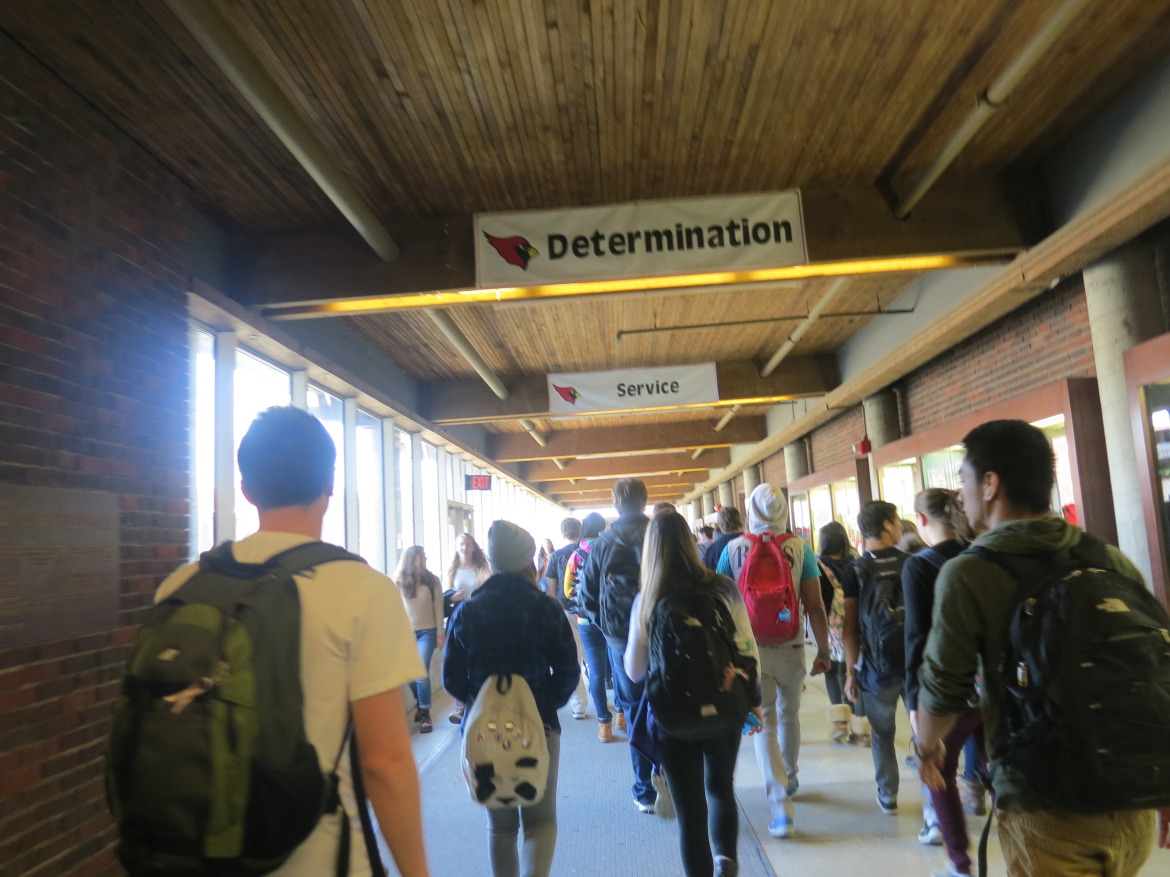 The following was submitted by Mareta Hamre, Former GHS PTA President who is currently pastor at First Church of Round Hill in Greenwich
The following was submitted by Mareta Hamre, Former GHS PTA President who is currently pastor at First Church of Round Hill in Greenwich
As a parent of two children who went through ninth grade World Themes and English classes at GHS, I am responding to the proposal to further segregate ninth grade Social Studies and English classes into three tracks instead of two. My daughter is a senior at Dartmouth College, majoring in South Asian Studies. She spent last summer in India evaluating high school English classes and advising the Education Department of one of the states in India.
My son is a freshman at Harvard University, considering a major in Social Studies, actively involved on the Model United Nations team, and finding himself extremely well prepared for the Social Studies classes he is taking.
Both of my children found ways to be challenged and learn from their ninth grade World Themes and English classes and would not have wanted to have been tracked into more segregated classes. (In addition, I have helped coach the GHS We The People team for the last five years, and I know from first-hand experience that the students in that class are not complaining about lack of a challenge.)
Social Studies is the study of human interactions and societies, with the goal of promoting civic competence. I suppose this is something that could be taught as a purely intellectual, abstract exercise of thinking about how different groups of people interact; but I do not think that is the most effective way of teaching the subject (and I think most educators would back me up on that). It would be like teaching an advanced cooking class by studying and thinking about recipes. Sure, we could test students in eighth grade to see how quickly they could halve or double recipes and whether they know the difference between an herb and a spice to earn them a spot in this advanced class of Cooking Theory, but why would we do that?
I could imagine these responses to such a proposal:
First, you learn cooking by doing it – by actually engaging in the process, over and over again, and then seeing and smelling and tasting the result. Yes, there are a lot of things you need to learn and remember in order to be good at it, but that is only a small part of learning to cook. I suggest the same is true with “*Social* Studies.” Students learn about how people with different viewpoints and different backgrounds learn to get along by interacting with different people, trying to understand how their varying experiences shape their views, and evaluating how all these different experiences and viewpoints can and should get along in a just society. It is one thing to discuss and even argue with someone who has the same lived experience and academic credentials as you do; it is something altogether different to discuss and try to persuade someone who is not like you and maybe does not see the world the same way you do. Students learn Social Studies in that process.
Second, having a cooking class that did not involve cooking would fail to take advantage of the superb resources at GHS: all the ovens and cookware and refrigerators and supplies that the school has available to teach cooking.
To segregate our Social Studies students into smaller and more homogenous intellectual groups would similarly fail to take advantage of one of Greenwich High’s truly unique resources: its student body.
One of the first things you learn in advanced Social Studies classes today is that our society is being further and further stratified and divided into self-contained homogenous groups and that that stratification is contrary to our country’s founding principles.
We are becoming more stratified in part because our schools start that process very early, by segregating students into homogenous schools. GHS has, to a remarkable degree, bucked that trend and is an amazing example of a truly diverse school – socio-economically, ethnically, and culturally. Other places in Connecticut like to think of Greenwich as a homogenous bubble, but we know that that is not the case. What an extraordinary and unique learning experience that offers our students! And what better setting to use that resource as a teaching tool than our Social Studies and English classrooms?
Our nation needs future leaders who understand and appreciate at a deep level the issues facing our richly diverse country. We will not be doing our most advanced students any favors by trying to teach about those issues in the abstract, denying them the experience of studying Social Studies and English in classrooms that reflect, in some way, our society.
Ninth grade Social Studies and English classes are the only academic classes at the high school where one very small group of elite students who tested well in eighth grade is not cordoned off in a little bubble to pursue academic excellence.
We already split the ninth grade into two parts for these classes; do we really want to continue down that road, teaching students that “Social Studies” means learning from people who are just like you?
Mareta Hamre
Former President, GHS PTA
Ms. Hamre is currently serving as pastor at First Church of Round Hill in Greenwich